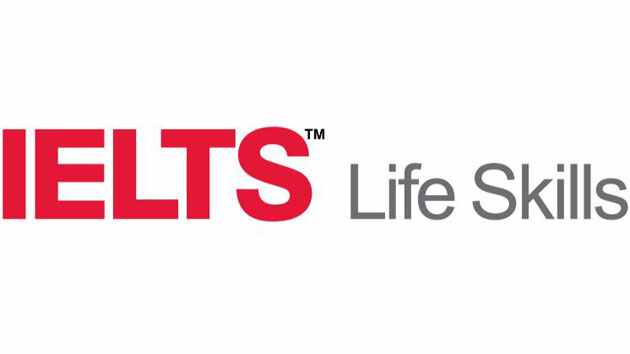Today’s healthcare facilities require health professionals who are qualified, competent, and compassionate towards patients. If you too want to be a part of the healthcare sector and realize your dream of becoming a nurse, this article is just for you. The United States Bureau of Labor Statistics predicts that between 2023 and 2033, growth will be 6 percent for Registered Nurses, thus generating close to 203,200 annual job openings every year. To prepare for this role, you need to understand a few crucial things first.
This write-up lays out what aspiring nurses should understand about nursing careers.
Understanding the Basics of Starting a Career in Nursing
To begin with, it is crucial to understand how to enter the nursing profession and the qualifications you will require for it. Nursing has different career roadmaps based on educational background, starting from just a diploma to an Associate degree in Nursing up to a Bachelor of Science in Nursing. All three lead to registered nursing; however, a BSN is preferred by employers as it comprehensively covers the wide scope of nursing training and methodologies.
You should also understand that the nursing profession is not only clinical. It also requires strong communication skills, a compassionate attitude, and the willingness to serve humanity. The right type of educational path forms a critical basis for shaping future success.
The most important steps toward becoming a nurse involve selecting an appropriate educational path that leads to this profession. Many such paths exist, each of which requires a different degree of time commitment and offers a different potential set of career benefits.
However, an excellent option for this is an online accelerated BSN program, which helps aspiring individuals fast-track their nursing education. It is a flexible and efficient way to qualify yourself as a registered nurse within 2 years.
Global Licensing and Certification Requirements
After your nursing education, licensure and certification to practice come next. One of the major exams for being a registered nurse is the NCLEX-RN. To pursue this dream career, millions take up this standard examination annually. Many parts of the world have made this necessary, where a person has to pass this before they are allowed to work as a nurse.
Top Nursing Certifications and Licenses Globally:
- NCLEX-RN (United States)
- NMC Registration [UK]
- CRNE-Canadian Registered Nurse Examination
- AHPRA License
- Nursing Council of New Zealand Registration
It is also essential to note that different regions may have different licensing requirements, particularly in countries like the U.S., whose different states will usually have their own way of setting the rules. One needs to carry out appropriate research and get aligned with the nursing guidelines in the particular region so that all the necessary criteria required for nursing are satisfied.
How to Prepare for the NCLEX Exam
The NCLEX examinations can be very intense, thus having a concrete study routine will enable one’s success. Primarily, it is important to gauge the design of the examination since it could apply computer-adaptive testing.
Practice exams or review books will help you refine your knowledge and overcome your weak areas, giving you a much-needed boost in confidence.
Create a study schedule that allows you to cover all topics without cramming. Focus on areas like pharmacology, patient care, and management principles, as these are often heavily tested. Moreover, consider joining a review course for extra guidance.
Lastly, practice time management during mock exams to ensure you're ready to handle the pressure on the final test day. Remember, consistent, focused preparation will lead to success.
Key Skills for Success in Nursing
Nursing is not an easy profession. It requires technical skills along with some personal attributes. Amongst all, the art of communication, critical thinking, and compassion are some basic essentials of a qualified nurse.
Communication and Interpersonal Skills
What would you do if a patient became confused about their treatment? Devote some thought to how challenging explaining various procedures can be to an elderly patient and concerned family members. This is something you will want to learn by ensuring clear and transparent communication.
Critical Thinking and Problem-Solving
Imagine being on duty in surgery when the patient's vitals start to crash. The more one panics and delays their action, the worse the patient’s condition gets. Critical thinking allows nurses to stay calm, take stock of the situation in front of them and act rapidly. Nurses always have to think quickly in response to problems that might arise out of high-pressure situations such as casualty or intensive care units.
Compassion and Patience
Compassion will help you get along with patients; your patience will enable you to give comfort to patients in need and during stressful situations. You value patience when you are calm and empathetic.
Continuing Education
It is said that learning never stops. But considering the field of nursing, one believes it to be even more crucial to keep abreast of the latest medical practices and technologies for patient care. Certification and advanced degrees serve to help nurses fine-tune their work skills and job prospects. An MSN or a DNP will open up specialized positions as well as leadership positions for nurses.
Networking and Mentorship
The size of one’s professional network can determine the success of their nursing career. This may be achieved through reaching out to mentors for guidance or through organizations based on nursing.
Networking allows people to take advantage of others’ life stories and take chances that they wouldn’t have without this method.
Leadership Opportunities
With enough experience and additional education, nurses can move up in leadership roles.
This would involve leading teams of nursing, teaching future nurses, or going into administrative positions. These roles show avenues for nurses to affect healthcare on a larger scale and allow them to further their careers.
Nursing is an overwhelming but rewarding job; it opens avenues of growth and specialization. From being a fresher to getting ahead in your career, the journey is full of opportunities. You can make a difference in somebody's life if educated properly, skillfully, and committed to it.

.jpg)




